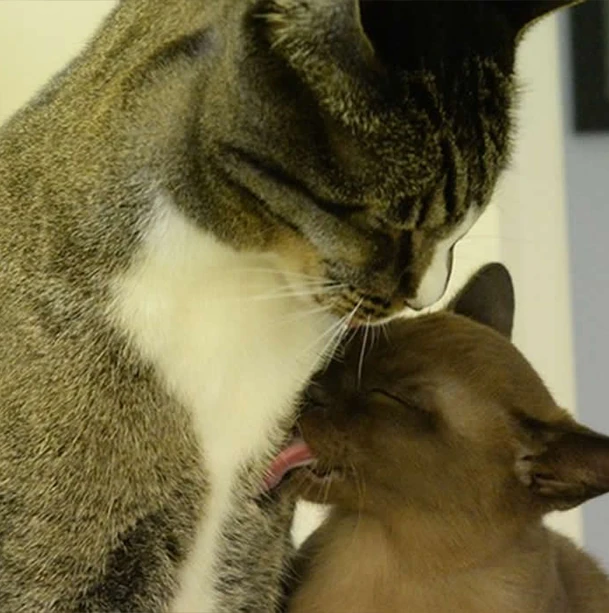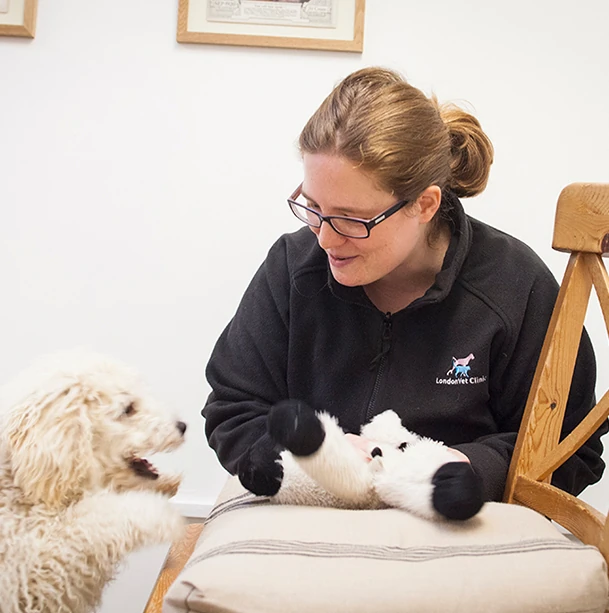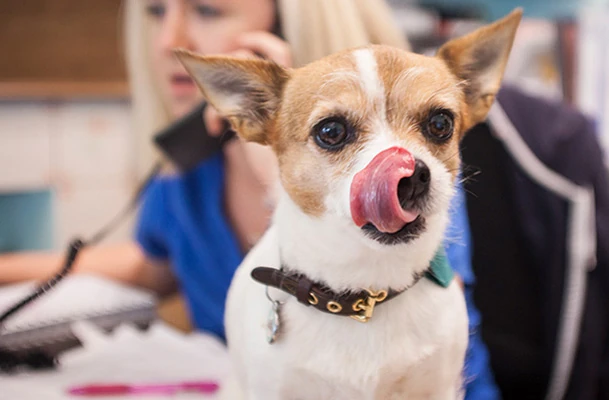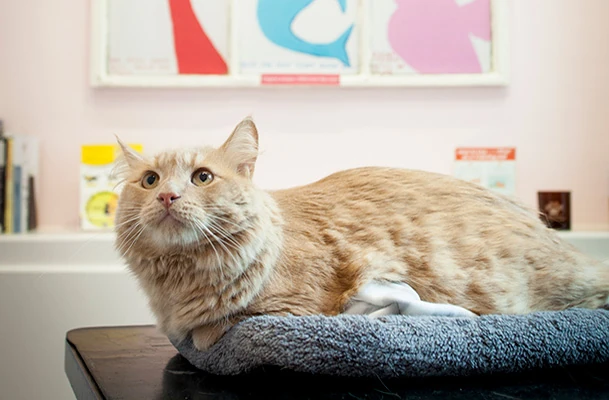Not long ago, vets spent most of our time treating infections or injuries. (When Bruce started working in London he saw dogs with distemper, cats with infectious enteritis and dogs and cats with broken bones every week.) We didn’t pay much attention to pet behaviour but as we understood more about how dogs and cats work we became more aware of their needs and emotions, and of our responsibility to prevent or to treat behaviour problems in these honorary members of our families. That’s why we created the London Vet Clinic’s Behaviour Referral Service.





